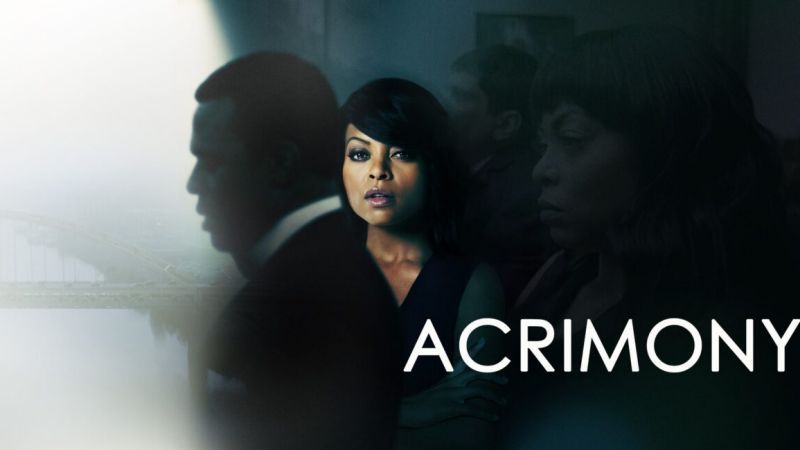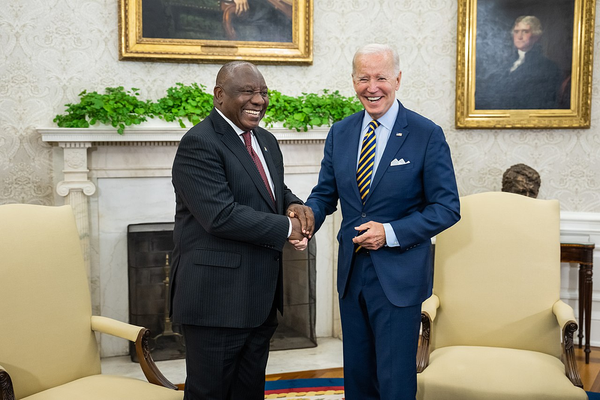Reevaluating Marriage Through The Lens of ‘Acrimony’
in reality, we tend to judge issues surrounding marriage more from the perspective of one of the parties, either the man or the woman because we heard from that person first or because they are our friend or relative.

Tyler Perry, the hulking Hollywood African-American movie maker, writes, directs, and produces ‘Acrimony,’ a psychological thriller featuring Taraji P. Henson (I’m pretty sure she’s Funke Akindele — Nigerian movie actress’ long-lost sister), Lyriq Bent, Crystle Stewart, Ajiona Alexus and Antonio Madison. I enjoyed the movie, although I have my reservations.
The fact that Tyler wrote, directed, and produced the it gives the movie the ‘Tyler Perry signature’. It’s similar to his other movies in terms of characterization. The movie tells the story of Robert (Lyriq Bent) a man with one single vision, who is willing to be the leach and suck his wife dry emotionally and financially pending when his vision would come to fruition. And, a loving woman, Melinda Gayle (the talented Taraji P. Henson) willing to do anything for her man except condone cheating or the idea of it. The movie is seen largely from Melinda’s perspective.
As I pointed out earlier, I have my reservations about the movie, but where it shines is its ability to generate meaningful discussions around its subject matter; marriage, which is something fewer and fewer movies do these days. For me, there are several questions or debate points if you will, the movie raises. I spoke with a few people about the movie and came up with some pertinent questions and discussion points: What is the role of each individual in marriage? What limits should each set?
What role should each party allow friends and family to play in their marriage? Who should take the blame for where the marriage is? What does the other person want in the marriage? How early should one get into marriage? There are a host of other subjective questions but for the sake of this article, I will attempt to answer the listed questions in no particular order.
HOW EARLY SHOULD ONE GET INTO MARRIAGE?
For me there is no time frame, there are too many variables to consider, so to give a definite answer is simply impossible. However, when two adults who are completely able to decide for themselves are contemplating marriage, and reach a point where each individual can objectively evaluate the situation and determine it is ripe for them to get married, then the time is right. In the movie, Robert popped the question after Melinda caught him cheating.
In my opinion, he popped the question simply as a way to make it up to Melinda for cheating on her and her inability to bear a child because of her rash reaction to his cheating. Marriage is a very personal decision that should be taken based on one’s deep objective thoughts. It’s not a must nor a race. No one will be given a medal for it.
WHAT DOES THE OTHER PERSON WANT IN MARRIAGE?
The same way you need to think deeply and decide for yourself is the same way you need to watch out for those telltale signs that’ll help you gauge what the other person wants out of the marriage. It is hard and subjective but if you pay close attention you should be able to tell to some extent. Robert showed signs of being a leech when he started collecting large sums of money from Melinda.
He didn’t think twice about her buying him a car nor did he care much about depleting her inheritance. He didn’t even care about her well-being! He watched her work harder than ever to keep the family afloat and that didn’t bother him. Melinda should have seen that Robert is a leech. She should’ve been able to objectively define him as such and based on that relationship with him in the marriage. Nothing says she shouldn’t have protected herself.
WHO SHOULD TAKE RESPONSIBILITY FOR WHERE THE MARRIAGE IS?
Seeing the movie unfold, you definitely would blame the man, I know I did. However, at some point, you would also tend to blame the woman for being too brash and long-suffering! Again this is subjective, but in my opinion, I would say this: marriage is a joint venture.
Both parties are to take responsibility for where the marriage is. Both parties are equally invested and the moment any of them lose sight of this, trouble will start. Therefore none of them should be absolved of blame, better still, they should strive to give each other credit for progress made and jointly work on whatever negative issues they may have.
WHAT ROLES SHOULD EACH INDIVIDUAL ALLOW FRIENDS AND FAMILY TO PLAY IN THEIR MARRIAGE?
Melinda had a lot of friends and family around her. Even though they all seemed to mean well, they advised her to make decisions that were counterproductive at critical points. Nobody should be on an island. We all need each other, but the fact is we sometimes don’t need the noise and all the multiple voices of those who mean well.
Sometimes it’s okay to make one’s own mistakes. The more unfiltered advice you take the more you lose a part of yourself because the action you’ll eventually take will be based on another person’s perspective.
WHAT LIMITS SHOULD EACH INDIVIDUAL SET?
As much as we all agree that marriage is a form of unification that shouldn’t be broken by anyone, it shouldn’t also be a death trap. Melinda was caught in a terrible reality where she had to work extra hard to support a family that was draining the life out of her. For more than a decade she worked harder and their finances fell even harder.
The husband kept working on his pipe dream without doing anything to address the reality of their lives. The husband’s limit was his dream and the only thing he was willing to work on. Melinda didn’t have any limits. She kept on working more to accommodate a mountain of debt that threatened to crush them. Setting a limit for herself in light of her husband’s ineptitude would’ve saved her so much heartache. Maybe the only limit she truly had was cheating.
WHAT IS THE ROLE OF EACH INDIVIDUAL IN MARRIAGE?
This is one of the most subjective topics in marriage. There are nature-imposed roles such as childbearing but those roles too are increasingly being challenged (I don’t subscribe to this). Generally, we view the man as the protector and ruler of the realm like Jon Snow and we see the woman as the mother of dragons — Game of Thrones. I believe whatever roles anyone plays in marriage should be mutually agreed upon and understood.
The roles should also be complimentary and must not clash. Melinda took on the role of the singular provider, not necessarily a bad thing. But it wasn’t understood by both parties. She worked hard not because she wouldn’t enjoy being spoiled every once in a while by her husband but because she had to cover their expense while both of them lacked a committed understanding of the sacrifice she was making. She had to pick up the slack of her husband, all the while Mr. Gayle was relishing his ineptitude.
The movie was made from the perception of Melinda, the good wife, this write-up follows the same format, and in reality, we tend to judge issues surrounding marriage more from the perspective of one of the parties, either the man or the woman because we heard from that person first or because they are our friend or relative.
This usually results in an unbalanced and unfair assessment. The onus is on the couple to make sure they keep at their marriage, to make it work despite any challenges they may face.
Acrimony is a movie that delivers on its intention to stimulate discussions about marriage. But like Chimamanda Adichie said:
The single story creates stereotypes, and the problem with stereotypes is not that they are untrue but incomplete. They make one story become the only story.
Conclusion
While the movie delivered its main goal, the story could’ve used more work. Were there unnecessary scenes and dialogue? Of course, there were. At the end of the day, we may not evaluate marriage through the lens of Acrimony. But we may talk about Acrimony and then reflect on marriage.

If you enjoyed this article, kindly subscribe to our weekly newsletter: "News From Around The Motherland," to stay updated on opinions, articles, and in-depth explorations of diverse African subjects. Thanks for reading.





